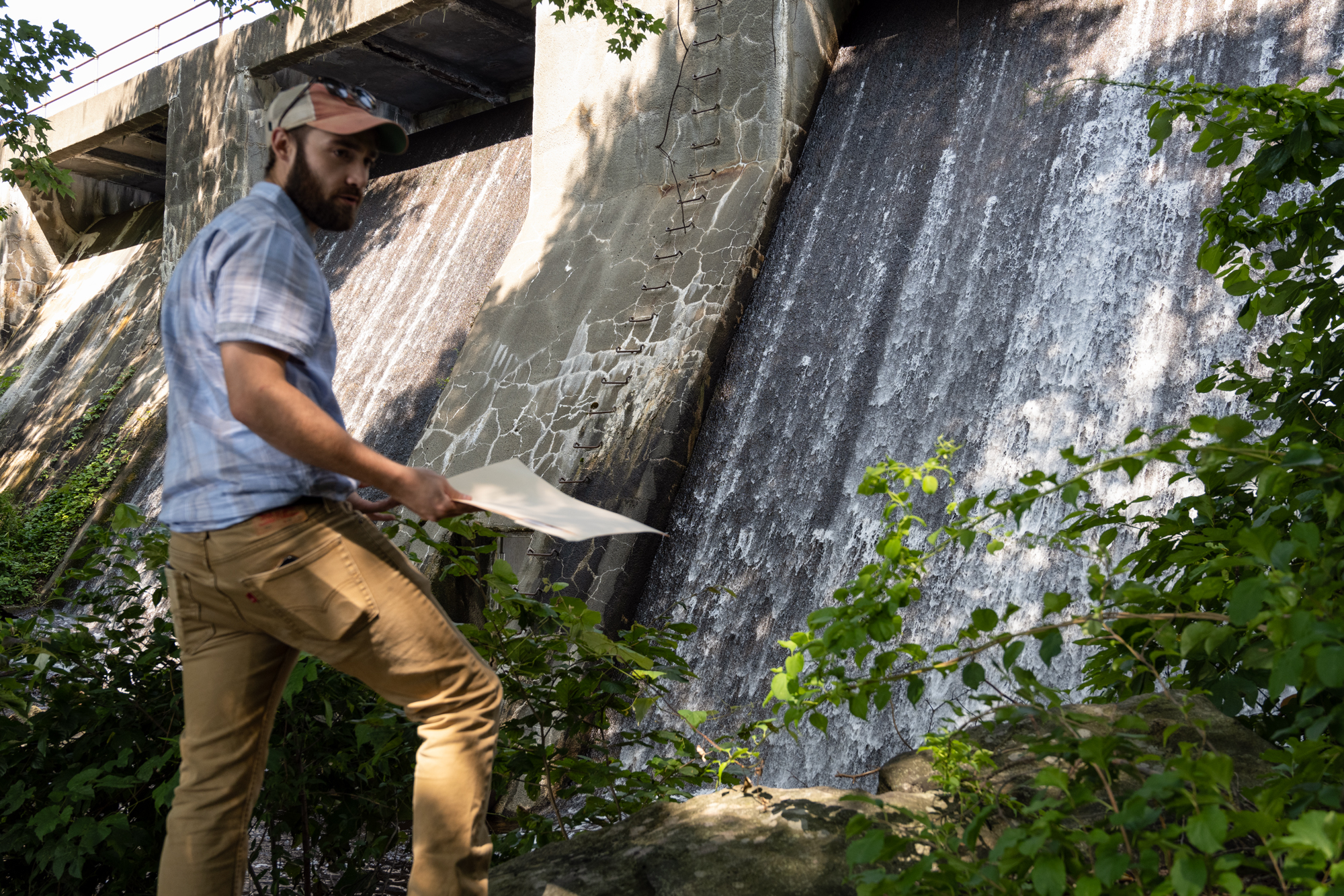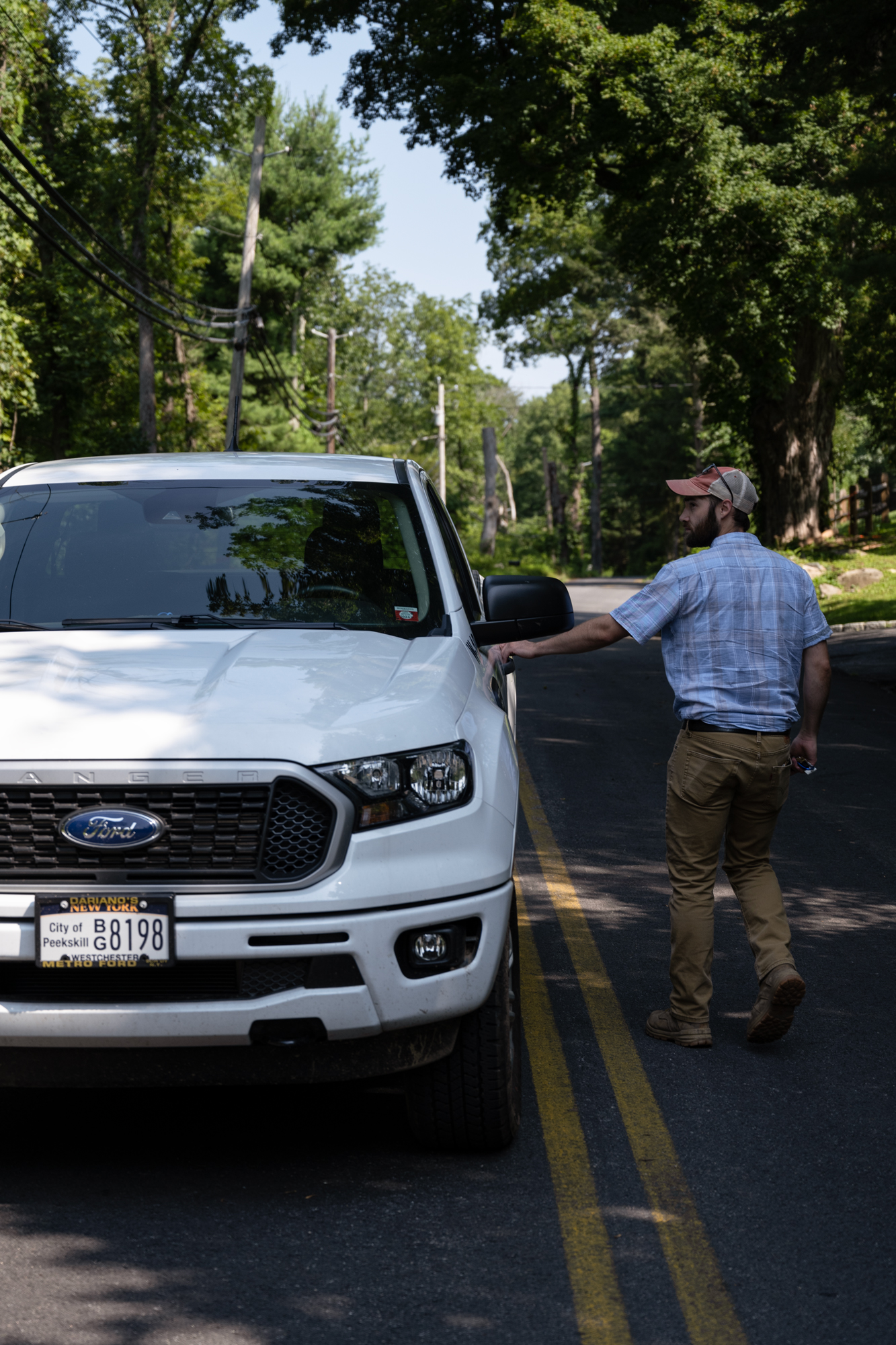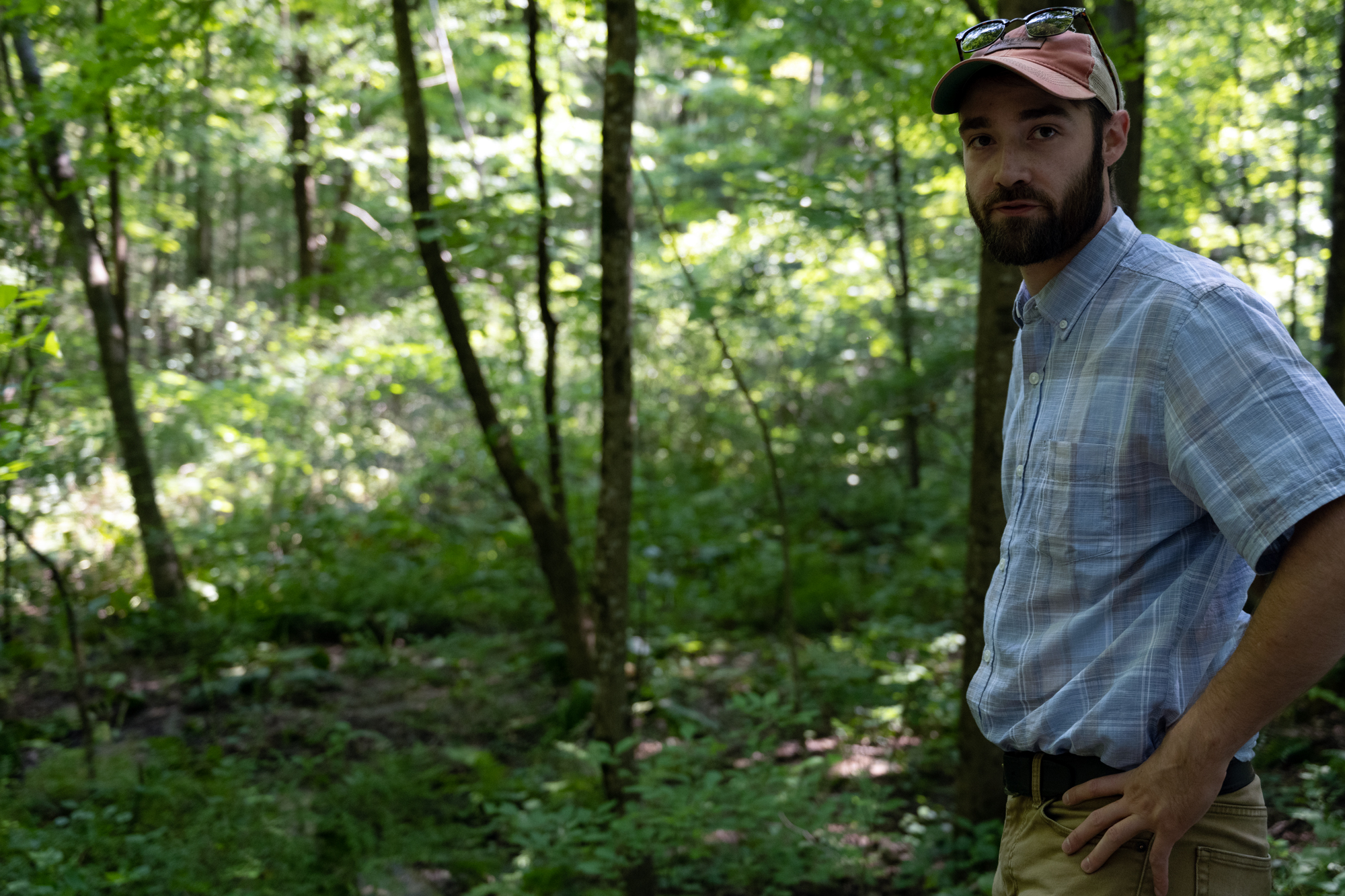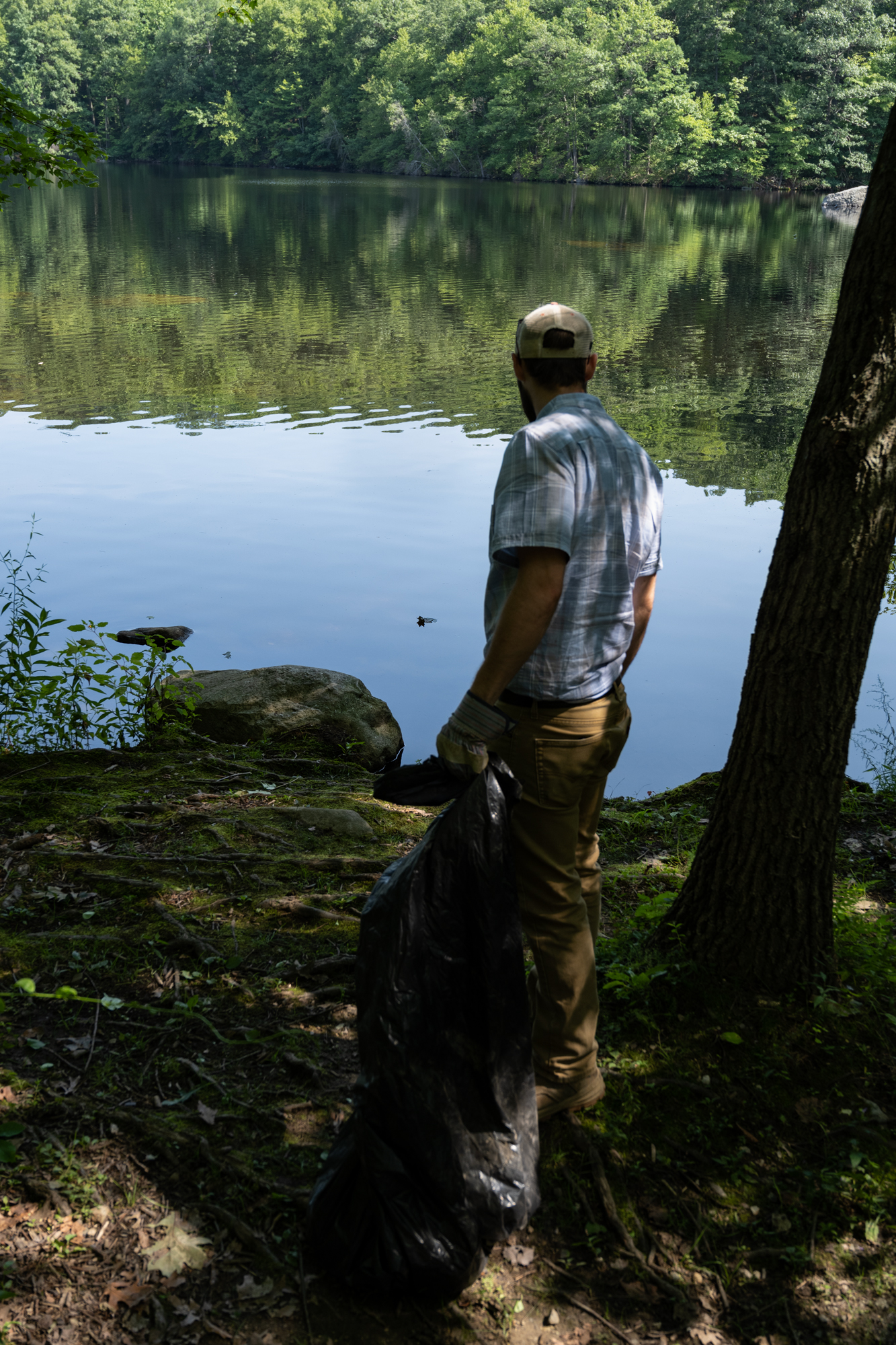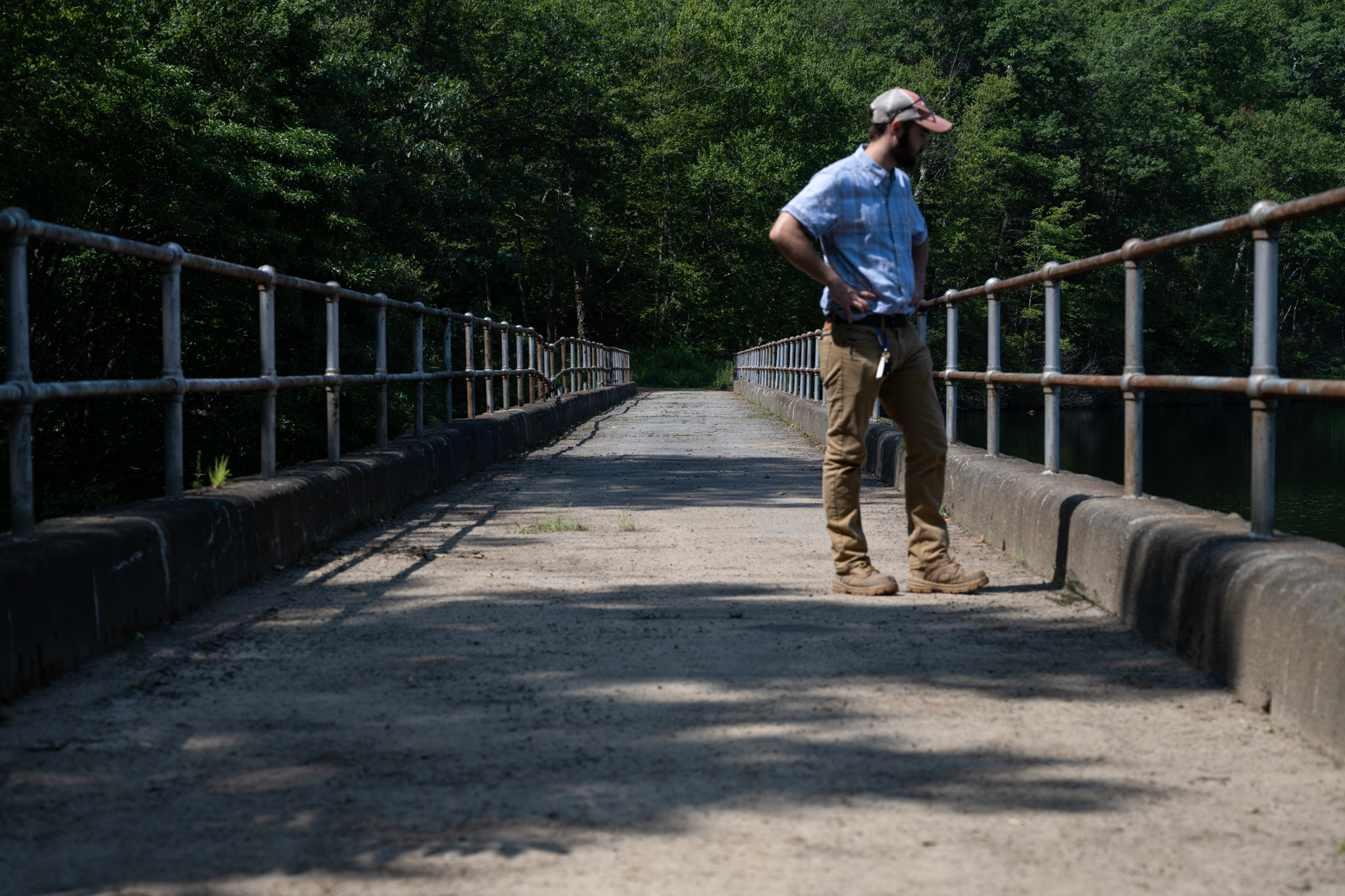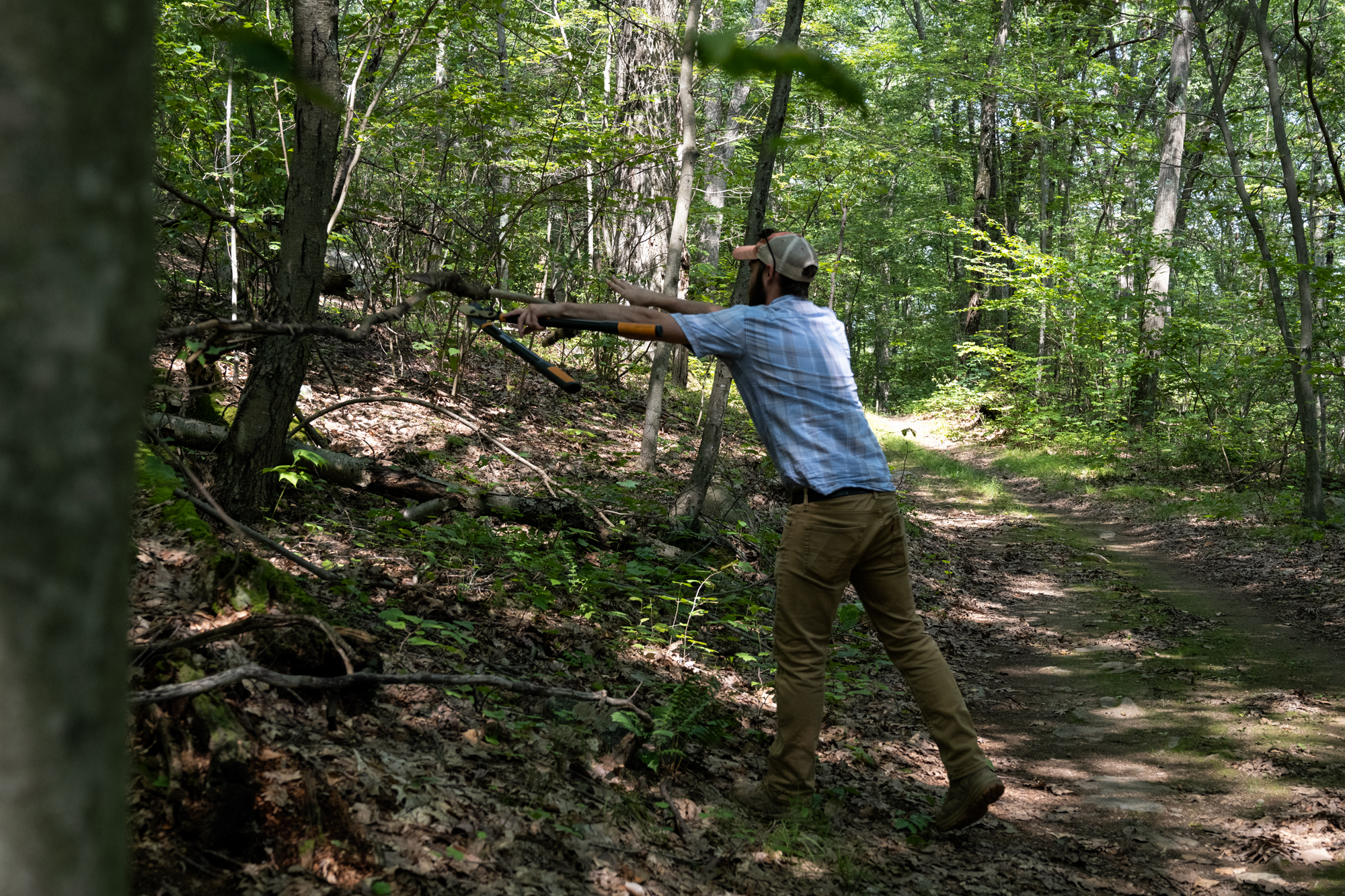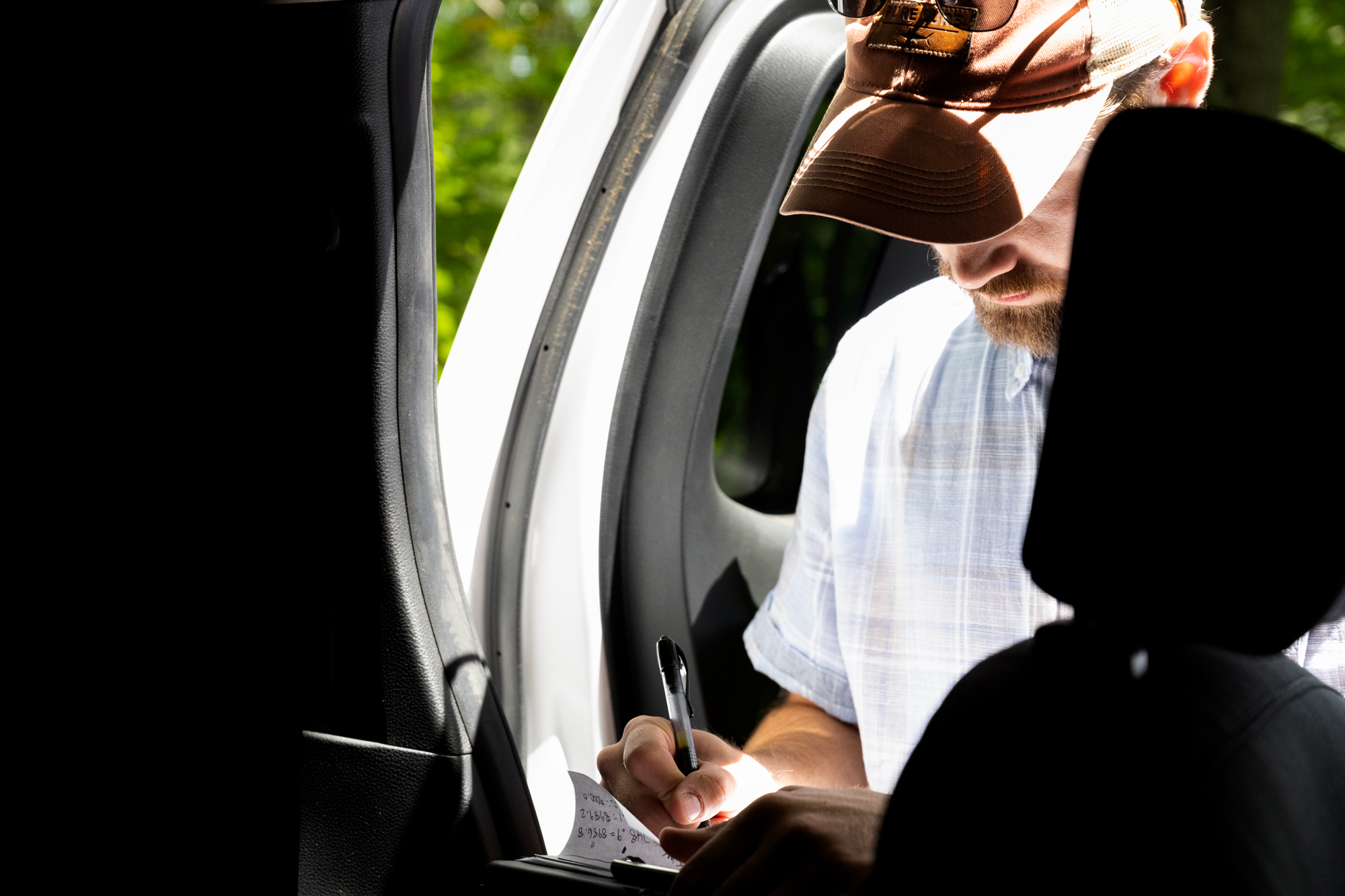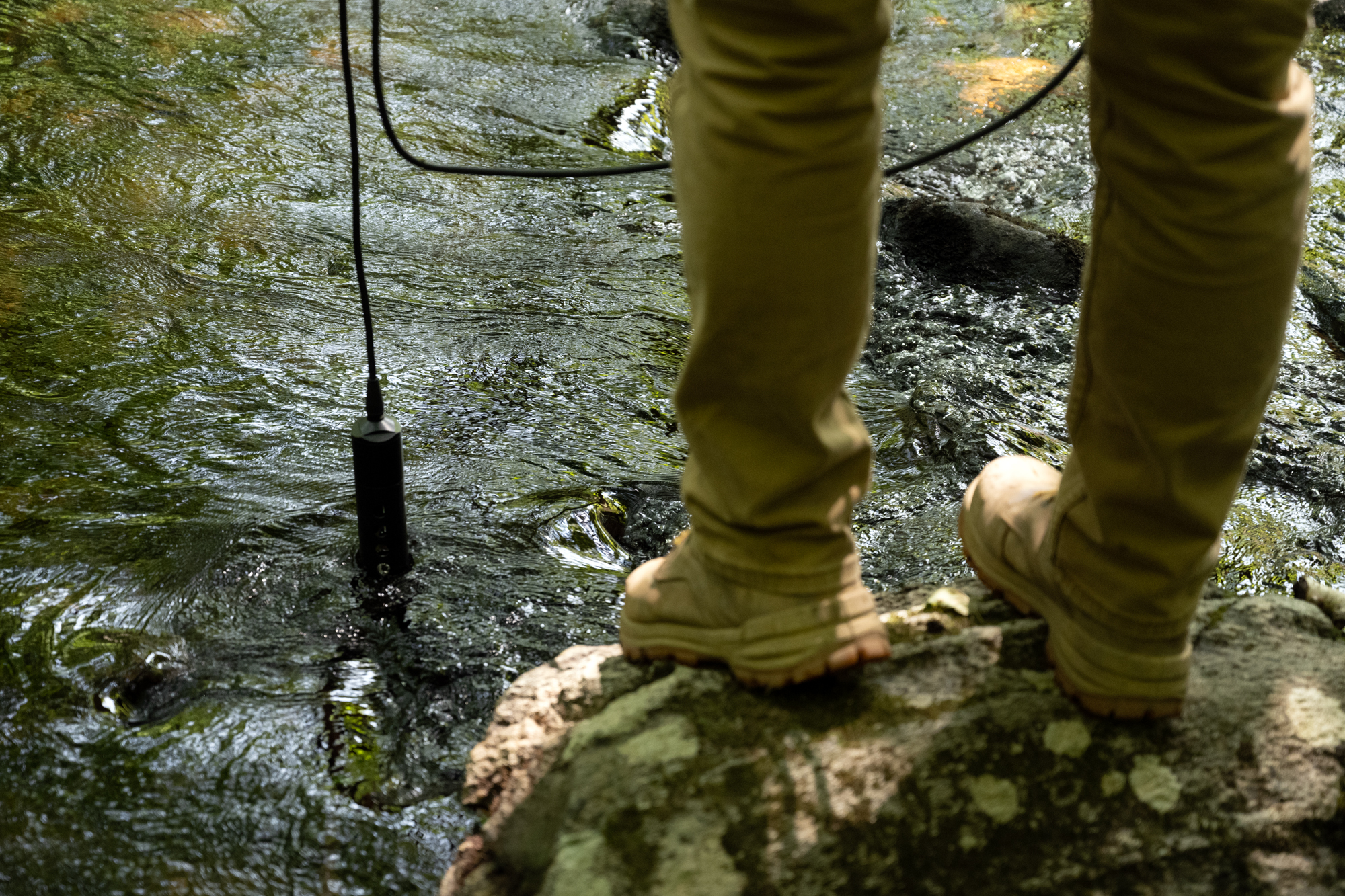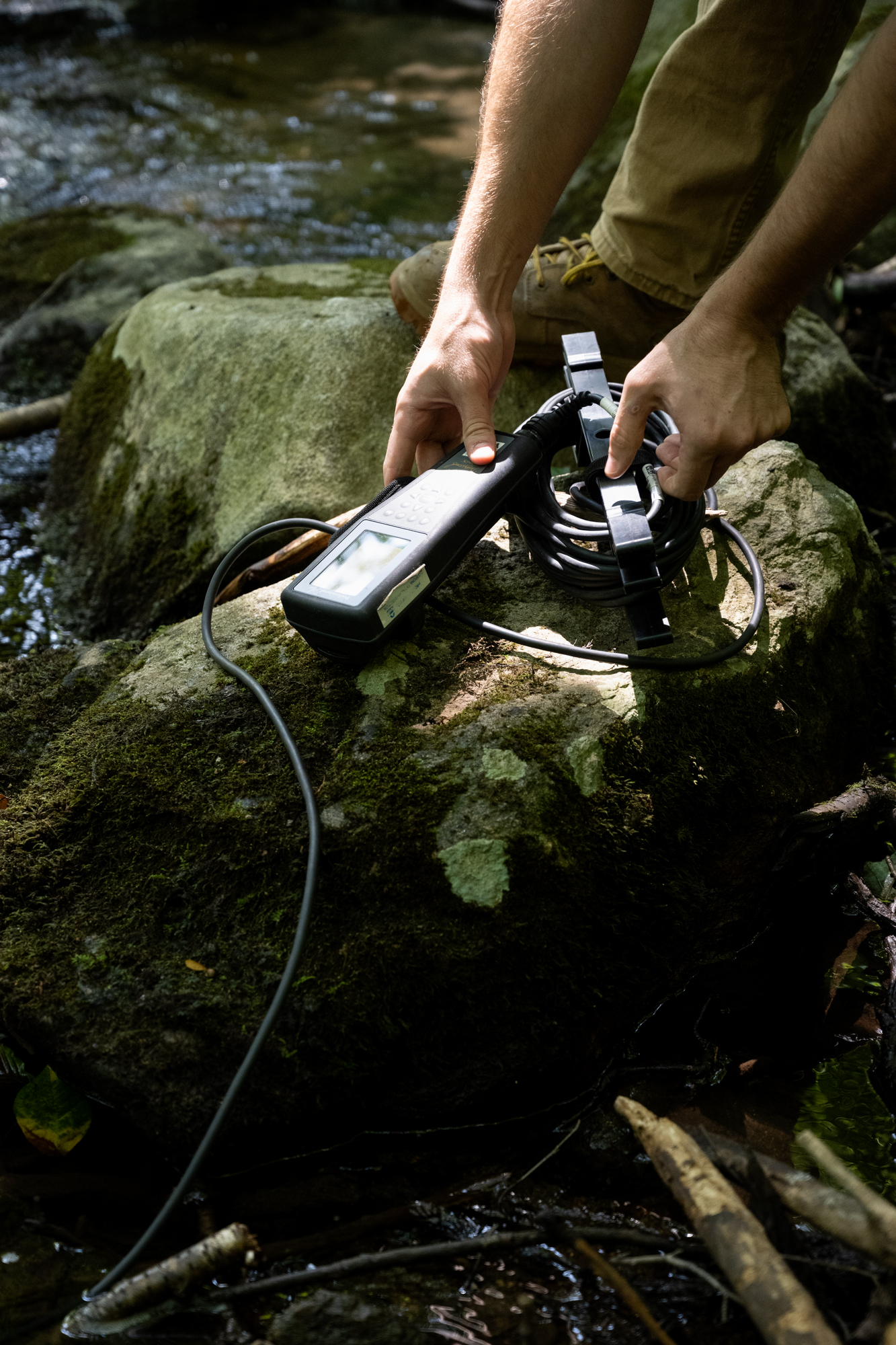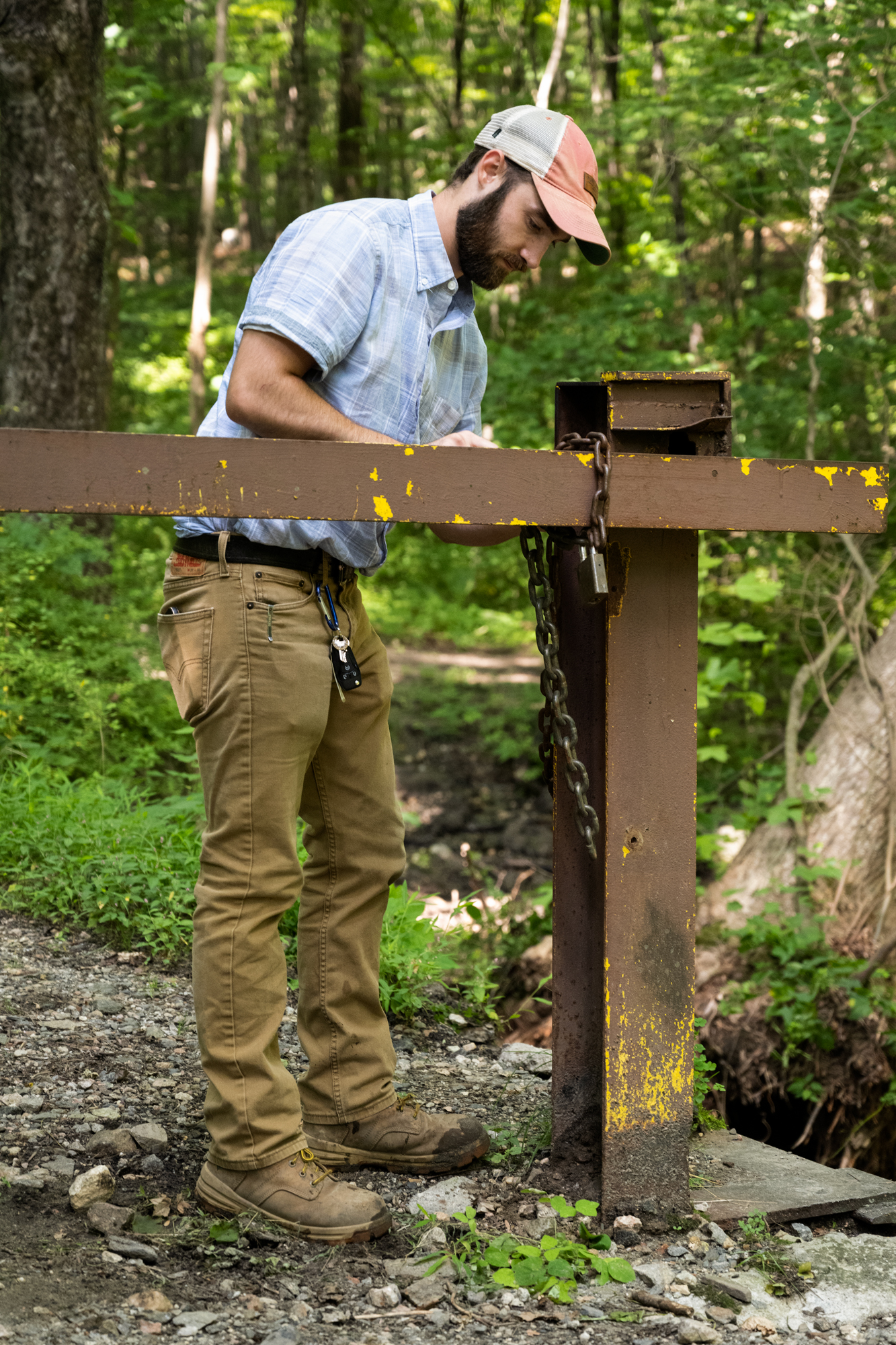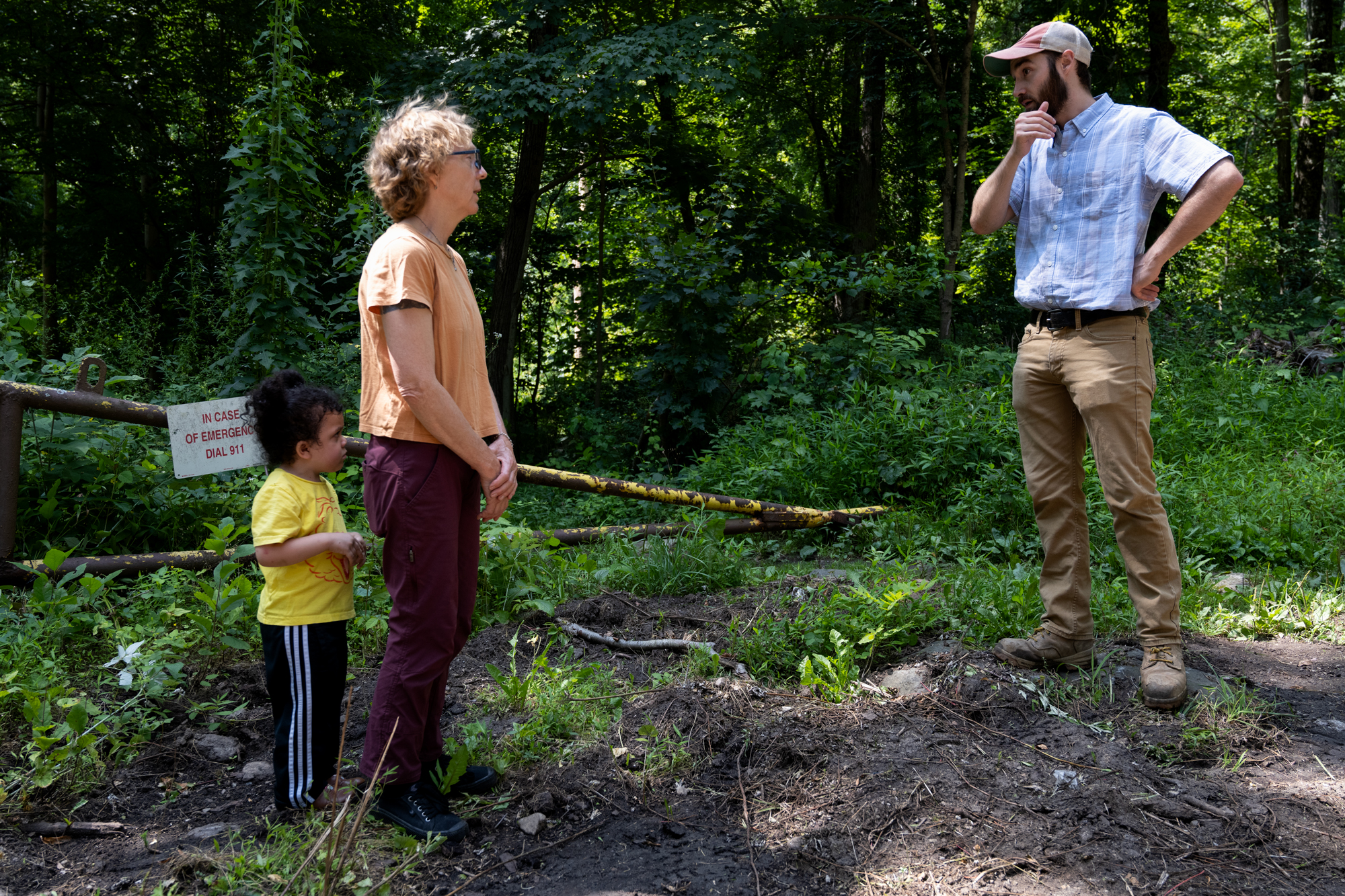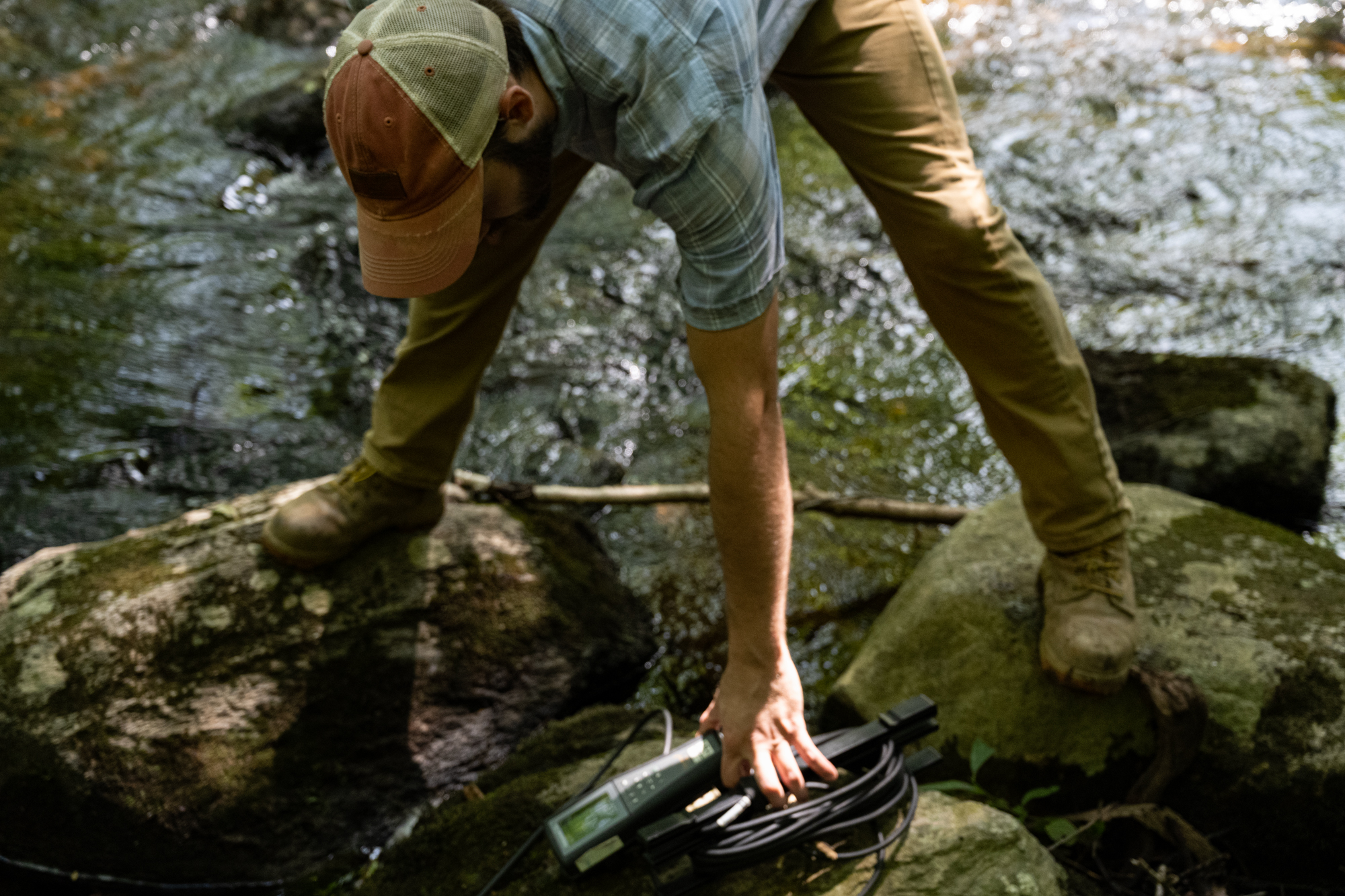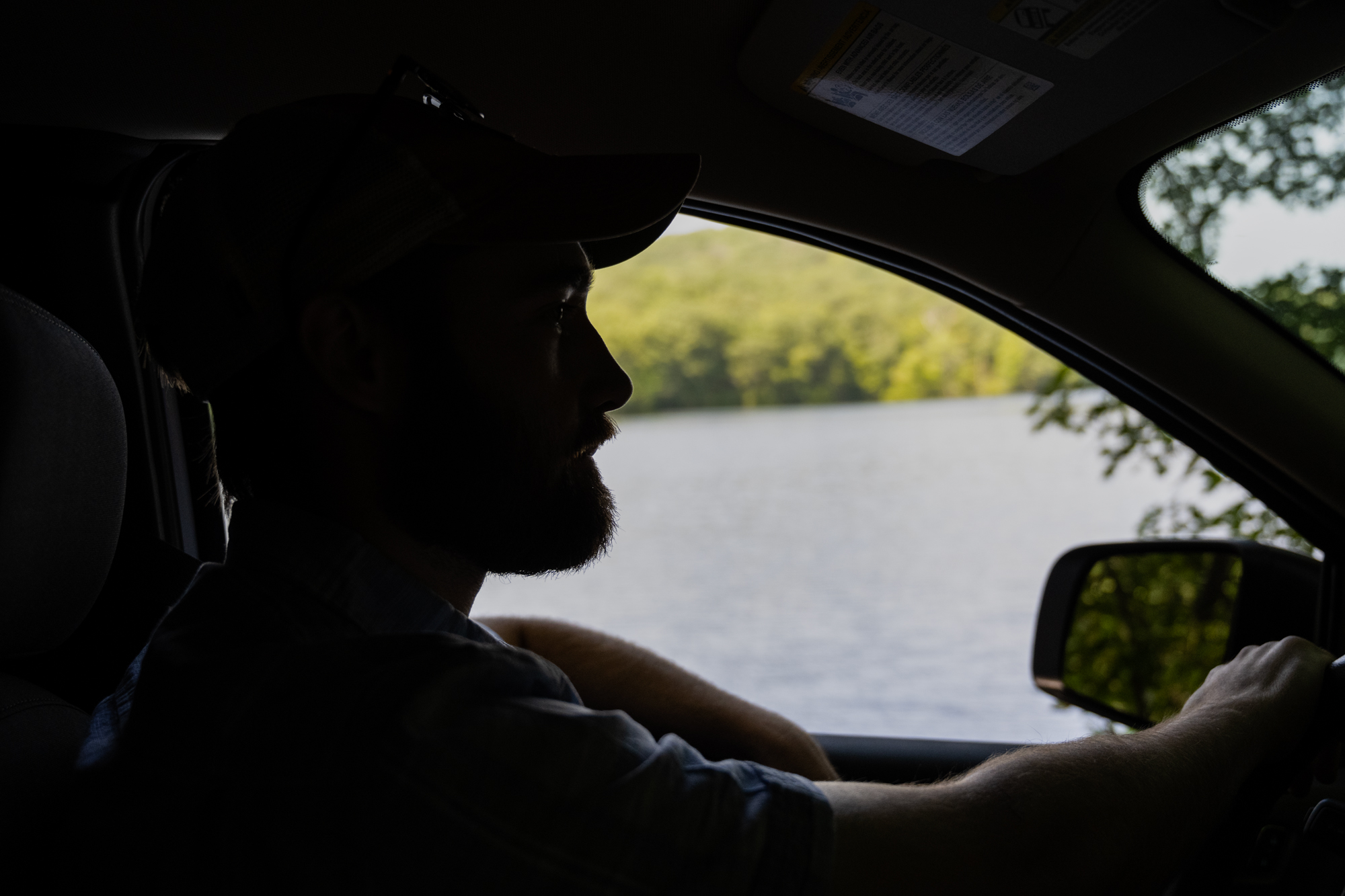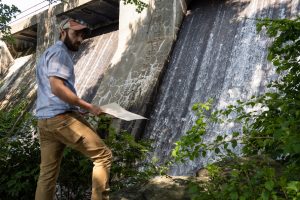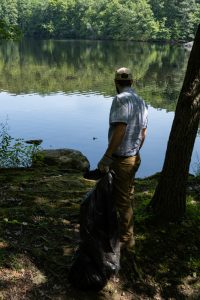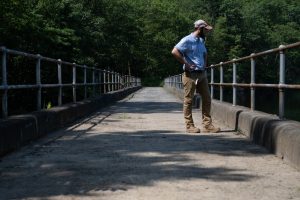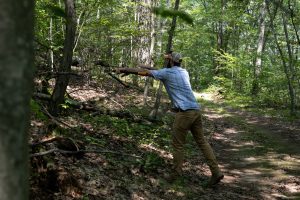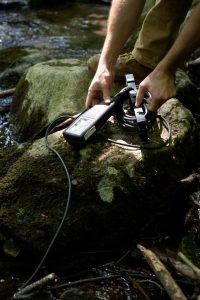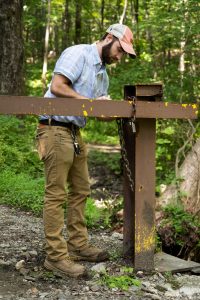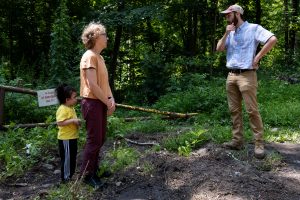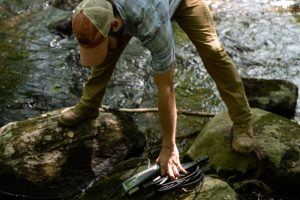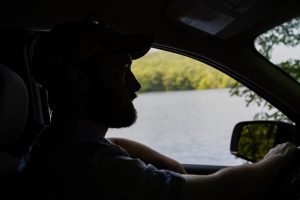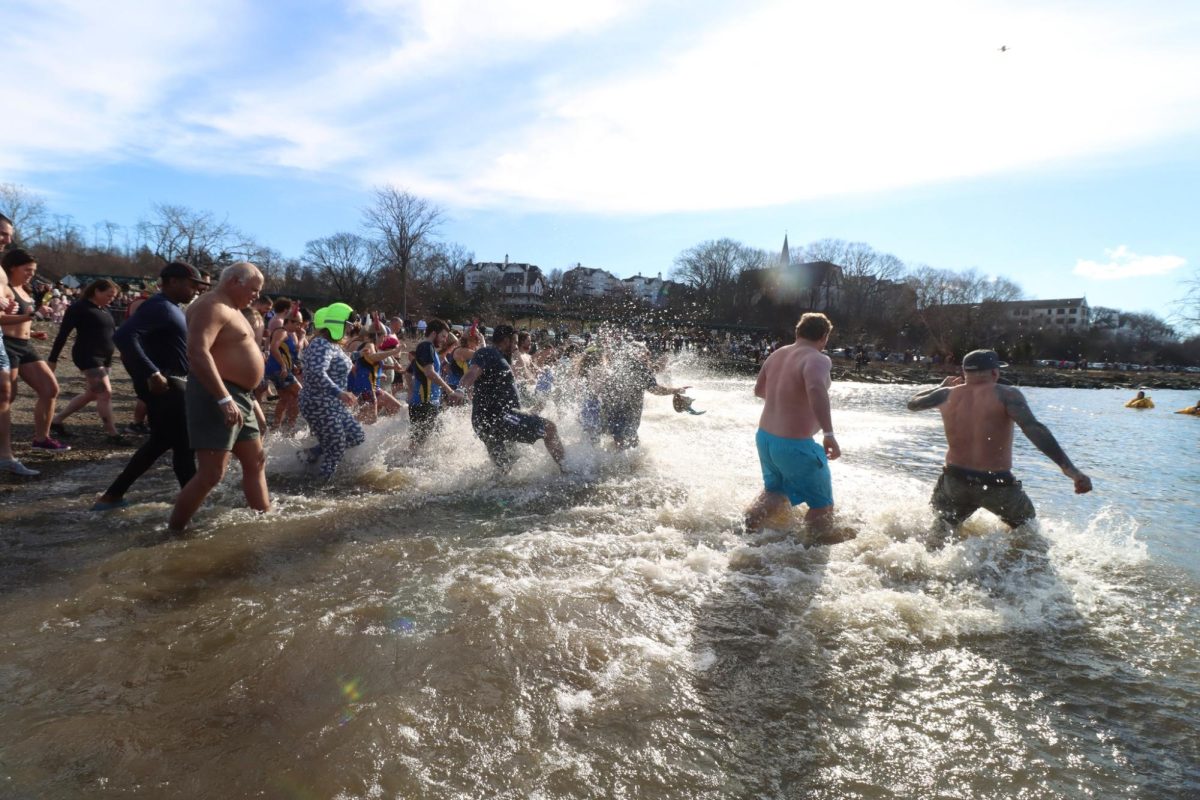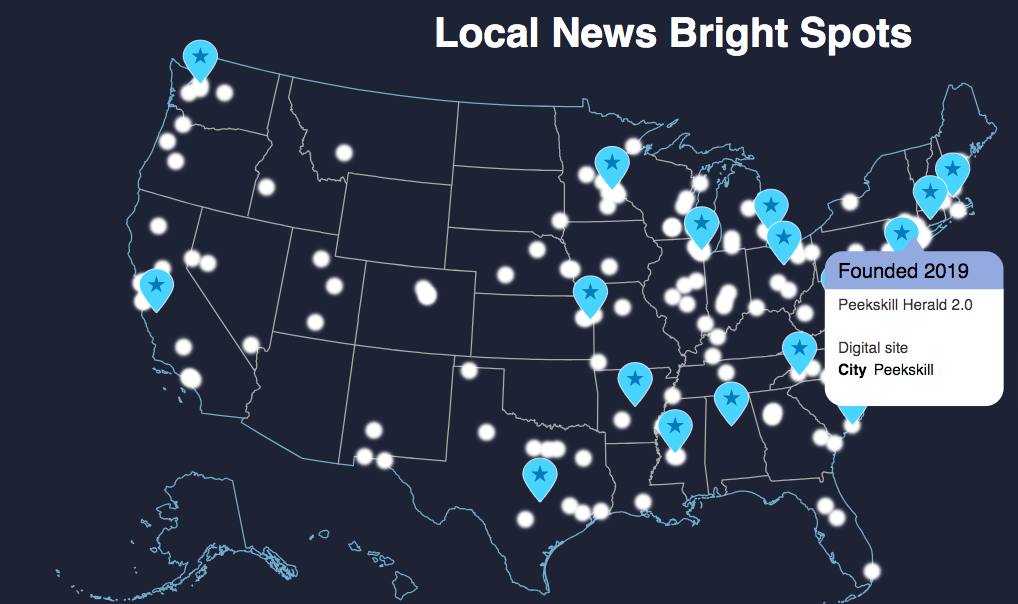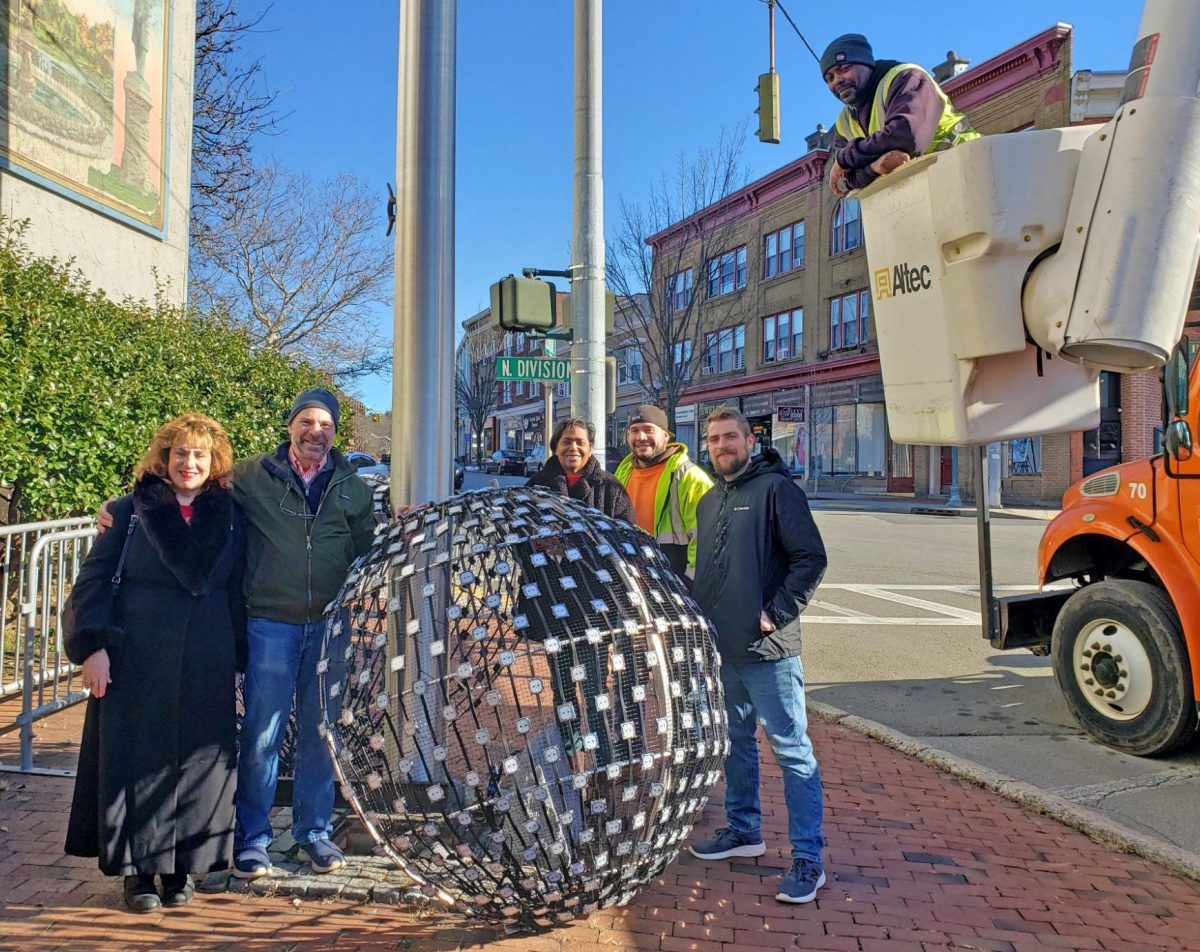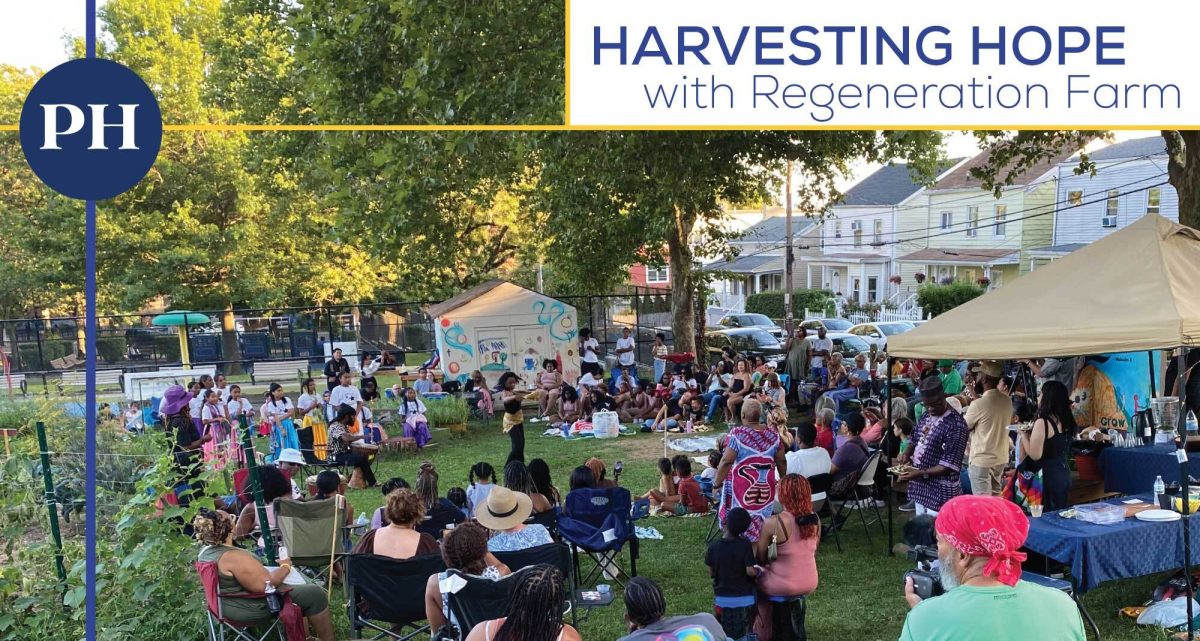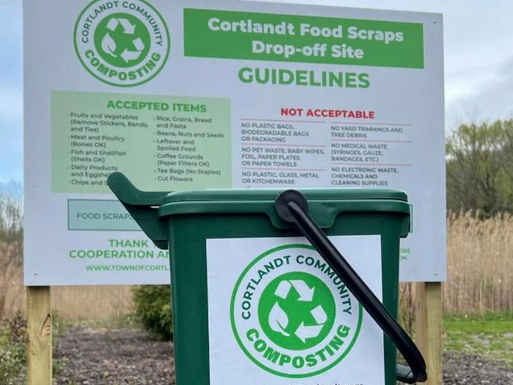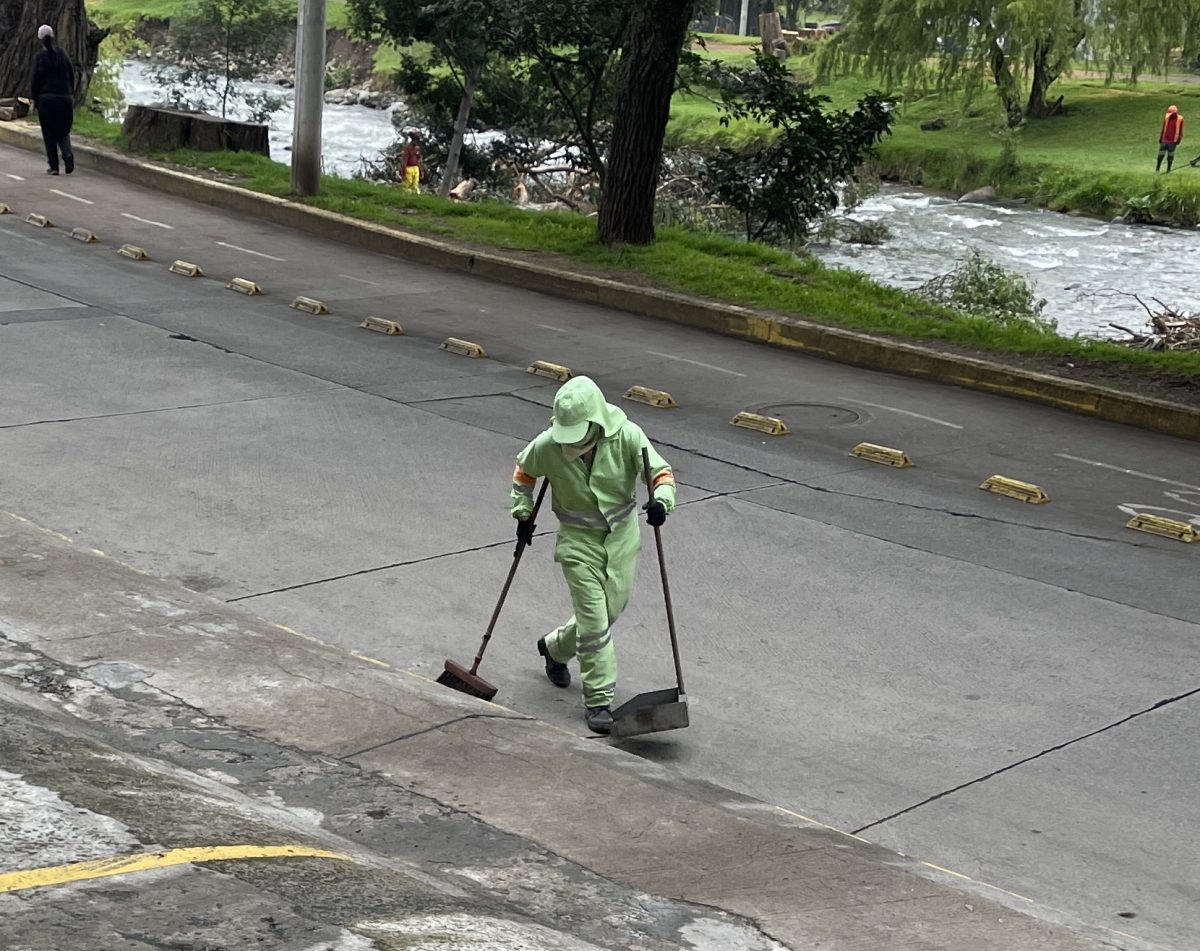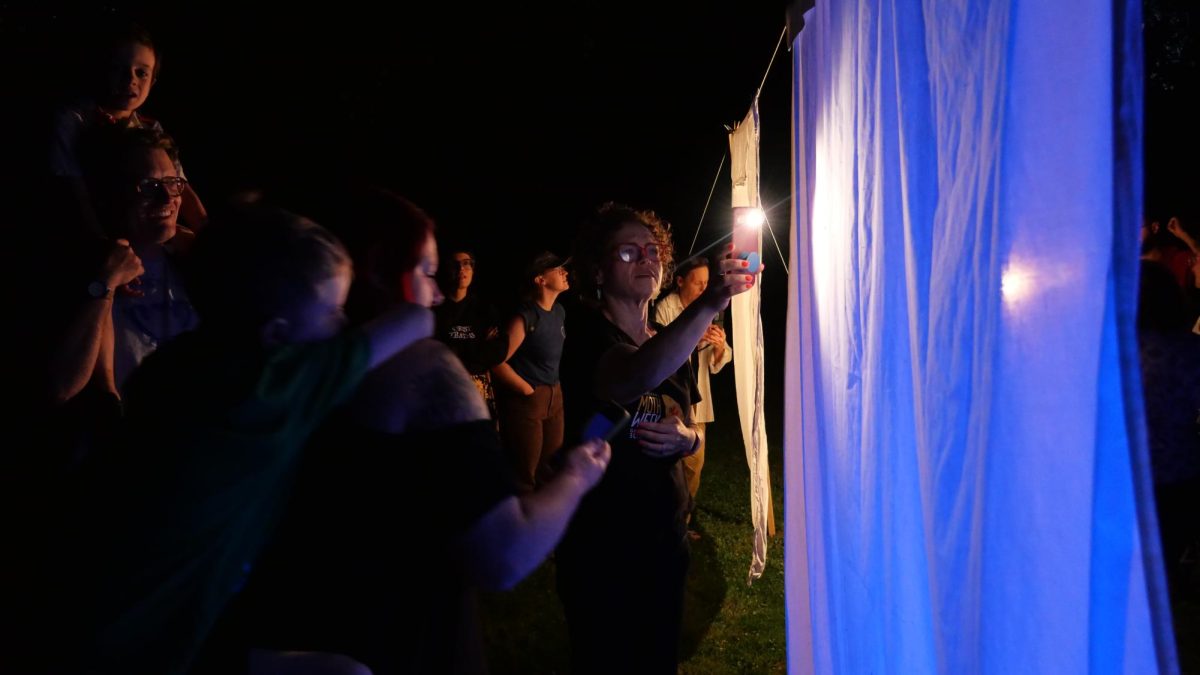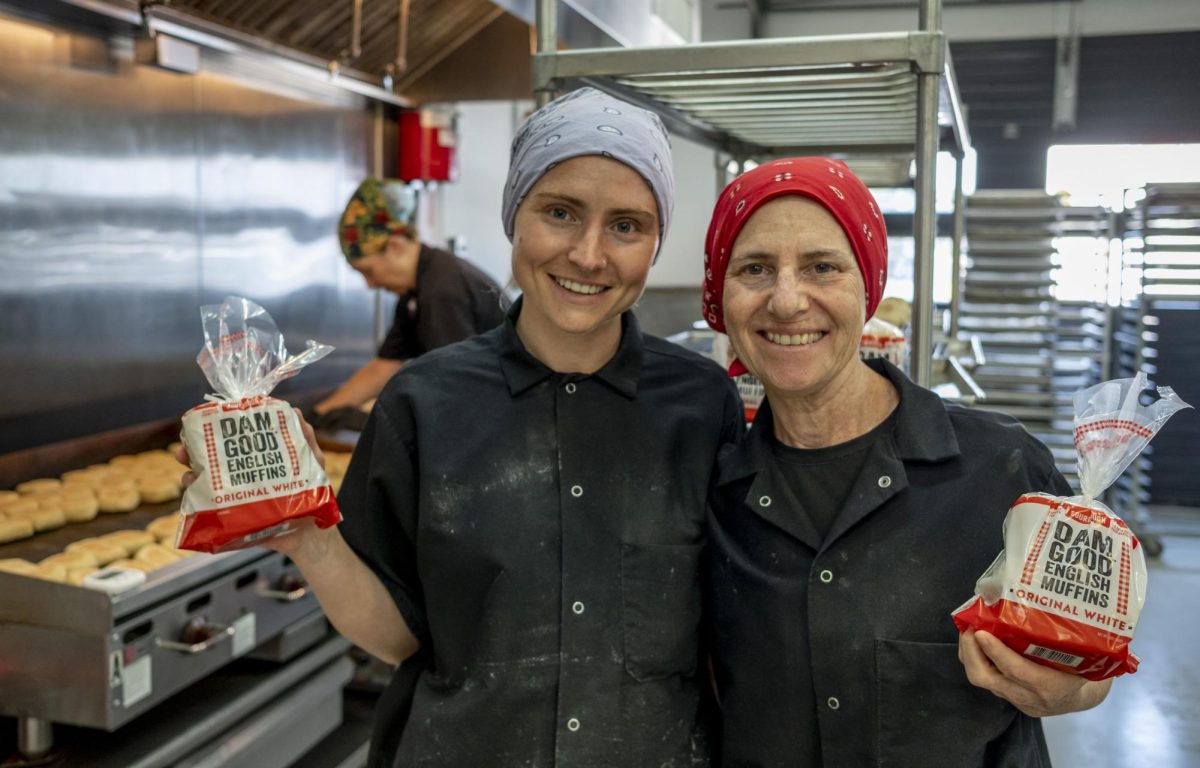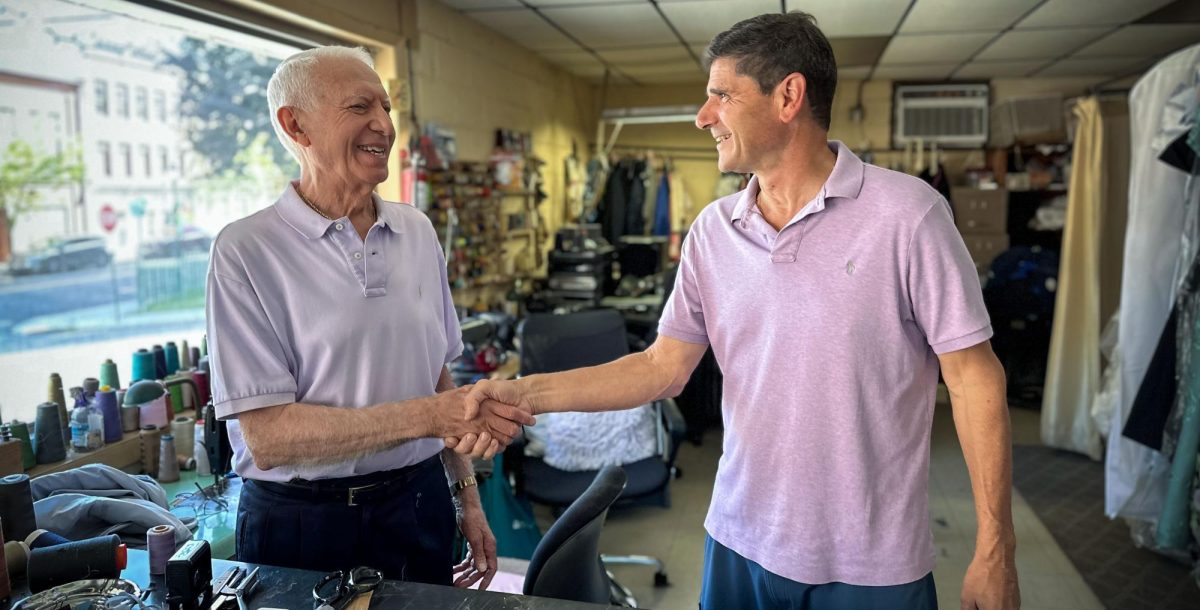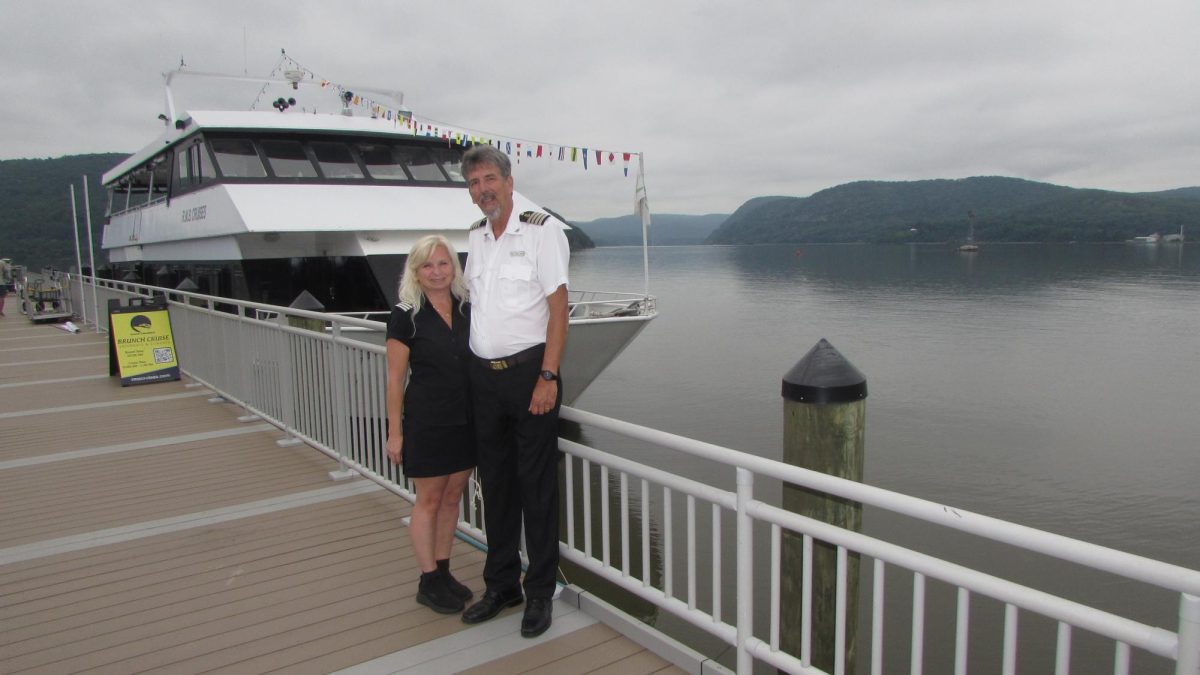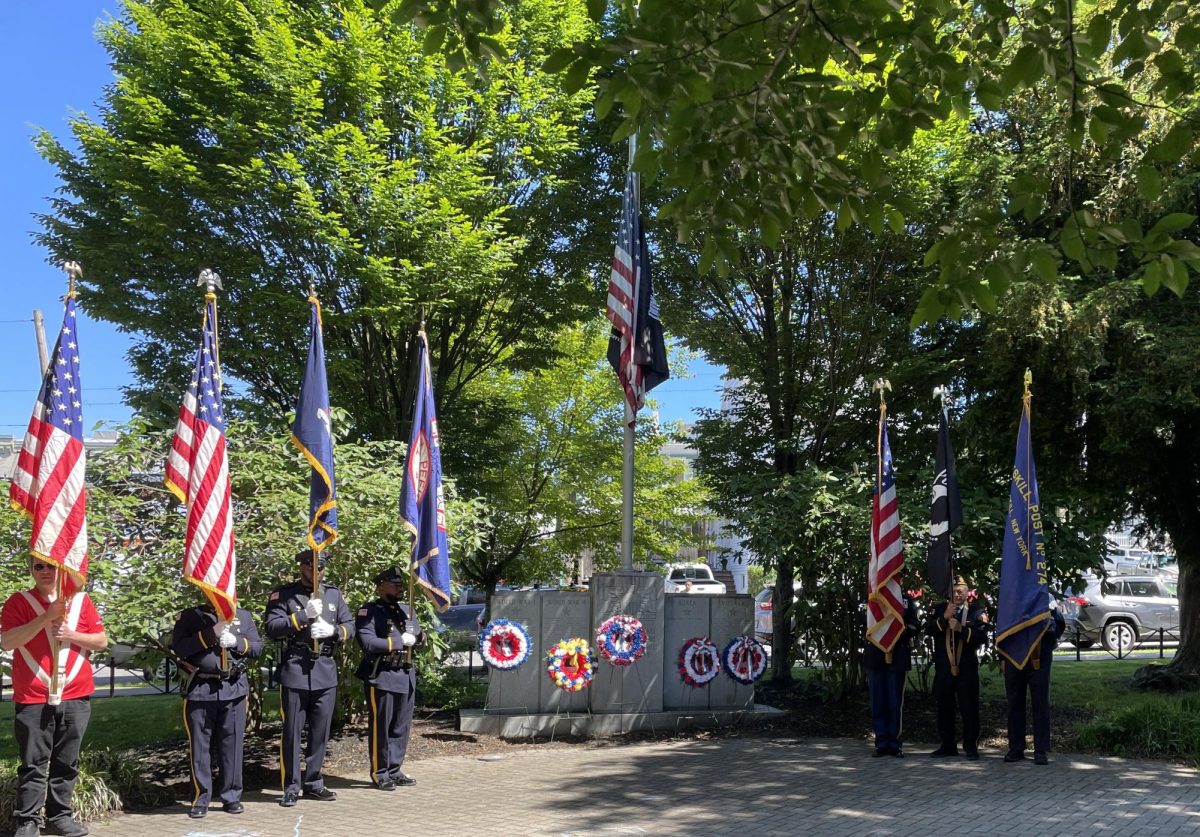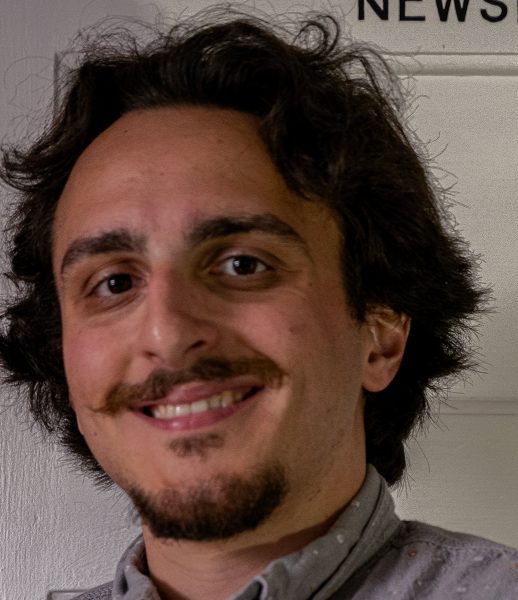Joe Scapoli packs light as he prepares to leave his office on Lindbergh Place next to the Camp Field reservoir—heavy gloves, a clipboard and paperwork, lopping shears, a water probe, bug spray— and trash bags in the back of an all-wheel drive truck.
Scapoli, 28, began his job as Peekskill’s Watershed Inspector in April. He graduated with a degree in environmental science from SUNY’s College of Environmental Science and Forestry, with a focus on watersheds and worked in the private sector for six years before coming to Peekskill.
A Watershed Inspector is responsible for keeping the reservoir and surrounding waterways clean. This is a vital job for making sure the water the 28,000 residents of Peekskill get is clean.
On a recent Tuesday, Scapoli was going to check the Wiccopee Reservoir, a trip he makes twice a week. First, he goes to the city’s pump house in the Town of Cortlandt where he surveys some lingering effects of last month’s heavy rain. The most obvious to the untrained eye is a scattering of dead trees along and near the crest of the dam. These can be left unless easy to clear. More concerning to Scapoli, however, is the potential for turbidity—cloudiness caused by suspended sediment—of the water.
“When you have something like this, that blocks the water flow,” Scapoli explained while pointing at the dam, “it allows the suspended solids in the water to settle out.” He then gestures towards a sediment bank, mostly along the water’s edge, which Scapoli says will be dredged in the coming weeks.
Back in the truck, Scapoli mentions having to take the long way up to the Wiccopee Reservoir in Putnam Valley and points out all the washouts from the flash flooding. On the drive, he explains how the area’s hills cause the water to pick up speed and compound the risk of flash flooding.
“When you get that much rain, no matter what, based on our watershed you get too much turbidity (particles like soil get suspended in the water, turning it murky) in the stream to collect it.” When this happens, the city switches to a four day reserve in the plant, stops pumping until the sediment clears and in a pinch can purchase water from surrounding towns.
When asked about preparing for increasingly rainy summers, Scapoli answers with a sigh.
“That’s what this whole thing is about, the whole reason I was hired, it’s to create resiliency in the watershed. We want to try to minimize the time we’re taking water from other sources. We want to minimize the impact on our water. We want to keep our water clean, and I strongly believe that everyone in the watershed, not just Peekskill, does actually care about that.”
Once he arrives at the reservoir, Scapoli’s job could be compared to a park ranger. He helps maintain the stone and dirt access roads to the dams, trims away anything that grows or falls into the path. He also looks out for signs of ATVs and dirt bikes and keeps an eye out for signs of human activity around the reservoir.
In between checking the water levels and condition of the dams, Scapoli drives slowly, stopping to hop out and pick up any litter he sees. While making his rounds, he spots the remnants of a recent campfire and pointed out the spot near the reservoir shore where he once found two car batteries.
“A lot of the time I end up going up there and just cleaning up from people walking, people fishing. Cleaning up all the stuff they have up there,” Scapoli concluded.
When he’s not in the field, Scapoli is back in his office. There’s where the rest of the job happens, which includes putting together educational presentations and fine-tuning equipment. He also uses his office time to work on a study for the Drinking Water Source Protection Program, (DWSP2) which, along with the New York State Department of Environmental Conservation, will help Peekskill protect its drinking water sources along the Peekskill Hollow Brook.
Scapoli is also spearheading an agreement with all seven towns— Peekskill, Putnam Valley, Yorktown, Cortlandt, Carmel, Kent, and Phillipstown — along with both of the county governments—Westchester and Putnam — within the watershed. The idea is to let governments that lie within the watershed, even slightly, give input on matters that might affect the area’s water quality.
Peekskill Water and Sewer Superintendent, and Scapoli’s boss, David Rambo said this agreement would be one of cooperation, not confrontation— “we don’t want to come in and strongarm them.”
“Say someone wants to build a new house [in Putnam Valley] and it’s right on the watershed,” Rambo explained, “we just want to be a part of that and work with them to make sure they’re not polluting the waterway. We want to see clear water coming down.”
Scapoli, for his part, is optimistic. “If we can get [the municipal agreement] accomplished,” he declared, “this’ll be a big step for water quality in New York, [and] certainly the protection of it.”


